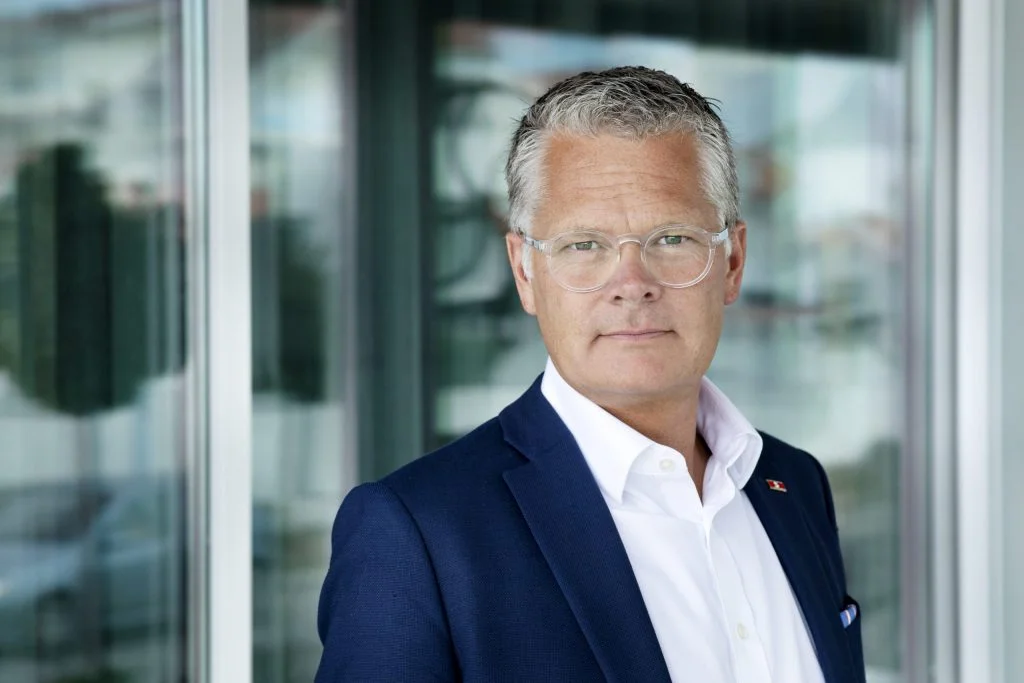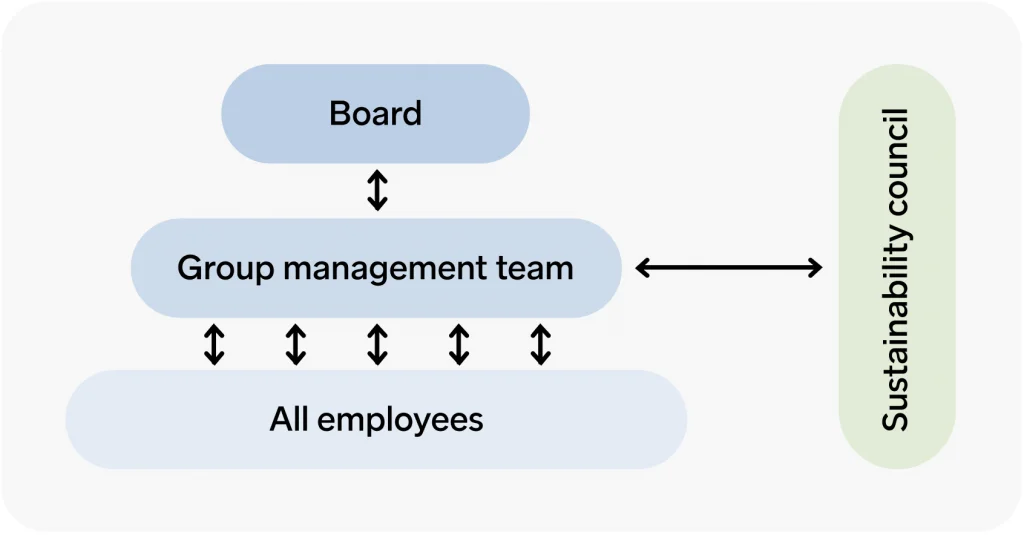No negative impact on climate
We are working towards no negative impact on the climate. Our target is to reduce our relative CO2 emissions from fossil fuels by 30% by 2030 compared to 2019.
A word from our CEO
For us at Stena Line, sustainability means the ability to sustain three key areas over the long term: the planet, the humans, and our business.
It also means taking responsibility. We know that our operations have played a role in creating climate change, so it is only fair that we are part of the solution. We also realise that as a major company, we possess the ability to drive change and so we share the responsibility to ensure the protection of human rights. This applies not only to our employees but to everyone associated with us. Moving forward, we will intensify our commitment to ensuring human rights and environmental responsibility across all our supply chains. We do it because we want to keep connecting Europe, and make sure there is medicine in the hospitals, food on the shelves, construction materials for the buildings of tomorrow, and that people can travel to see their loved ones. We also do it because we can, and therefore we must.

Highlights
6,200
Employees
40
operating vessels
138
Laps around the world
Embedding sustainability across our business
Led by our Sustainability Lead, everyone at Stena Line is responsible for delivering our sustainability strategy, according to the ambitions set out by our Group management team and Board. Stena Line also has a sustainability council responsible for driving specific targets and focus areas.

The list
Here you will find the big little things that we have done on our journey towards a more sustainable future.
Tilted a propeller
Analysing the Fuel Management System data of Stena Flavia on the Liepaja to Travemünde route led to several energy saving changes, lowering the fuel consumption and emissions. One of them: a slight tilt of the propeller. Sometimes the smallest things really can make a big difference.
Continued to save fuel with FMS
Following the successful pilot test on Stena Vision in 2012, the majority of our fleet has been equipped with the energy saving system FMS.
Built more bulbous bows
Following the preceding success of URD, five more vessels were modified with new bulbous bows in the years to come, including Stena Scandinavica and Germanica on our Gothenburg to Kiel route, as well as Stena Vision and Spirit frequenting the waters between Gdynia and Karlskrona. In 2016, Stena Danica on the Gothenburg to Frederikshavn route became the last vessel so far to get this fuel-saving modification.
Calculate your carbon emissions
At Stena Line, we’re working relentlessly on being a leader in sustainable shipping. Right now, we’re working on a solution to calculate CO2 emissions for both passengers and freight.
Sustainability contacts
We welcome your views and suggestions about our efforts in Connecting Europe for a Sustainable Future.